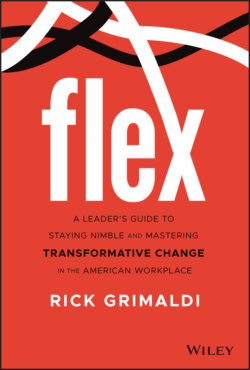Читать книгу FLEX - Rick Grimaldi - Страница 13
Language Is Changing: R U Up to Speed?
ОглавлениеNot only are demographics and education changing but also the way we communicate is changing. Much like cells in biological evolution, which are constantly mutating according to their environment, so too is language ever evolving.
Linguists study this phenomenon,12 in fact, and talk about the concept of “drift,” the seeming random nature of how language changes over time, much like the concept of genetic drift in biology, which studies how existing genes vary in a population with random sampling. The idea here is that, whether we are talking about genes or language, you can study whether (and how) it survives and reproduces in the future.
When it comes to evolving language, it's typically a result of certain pressures that come to bear. Changing social norms, for example, signal which words are socially acceptable or not. Then there are technical innovations that make it more convenient to communicate within certain parameters.
Sometimes it's just the way that some verb conjugations are harder to remember than others, making some words used far less frequently until they fall out of our lexicon. When it comes to other words, they become favored by “insiders” or “outsiders” or are only used by those in power (such as corporate executives)—or those who feel disenfranchised (such as protesters).
As our world reshapes itself through changes in generational and racial demographics, the language we use—the way we communicate—is reshaping itself in some important ways. And it's critical to be aware and adept at navigating this change in the American workplace.
